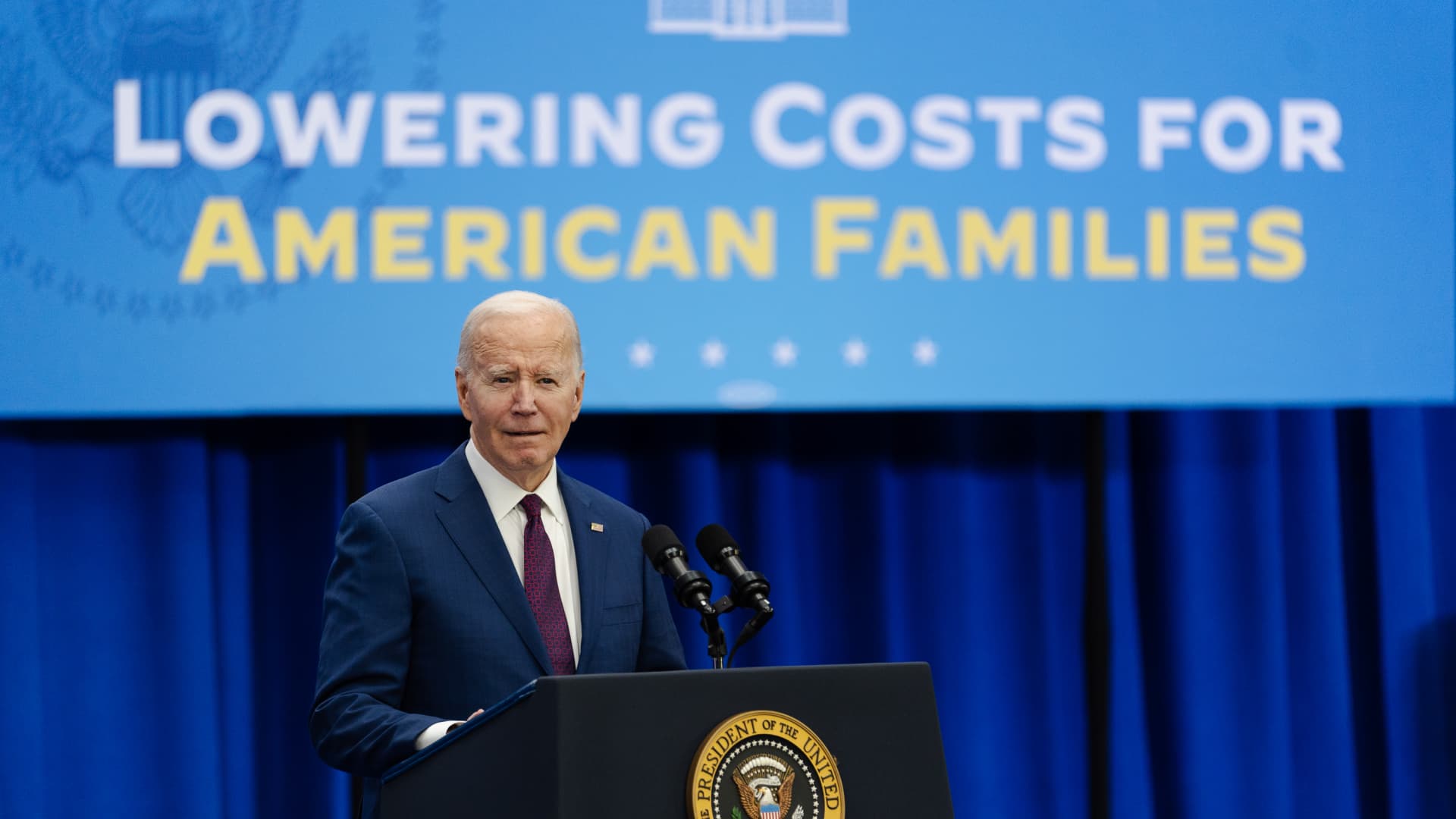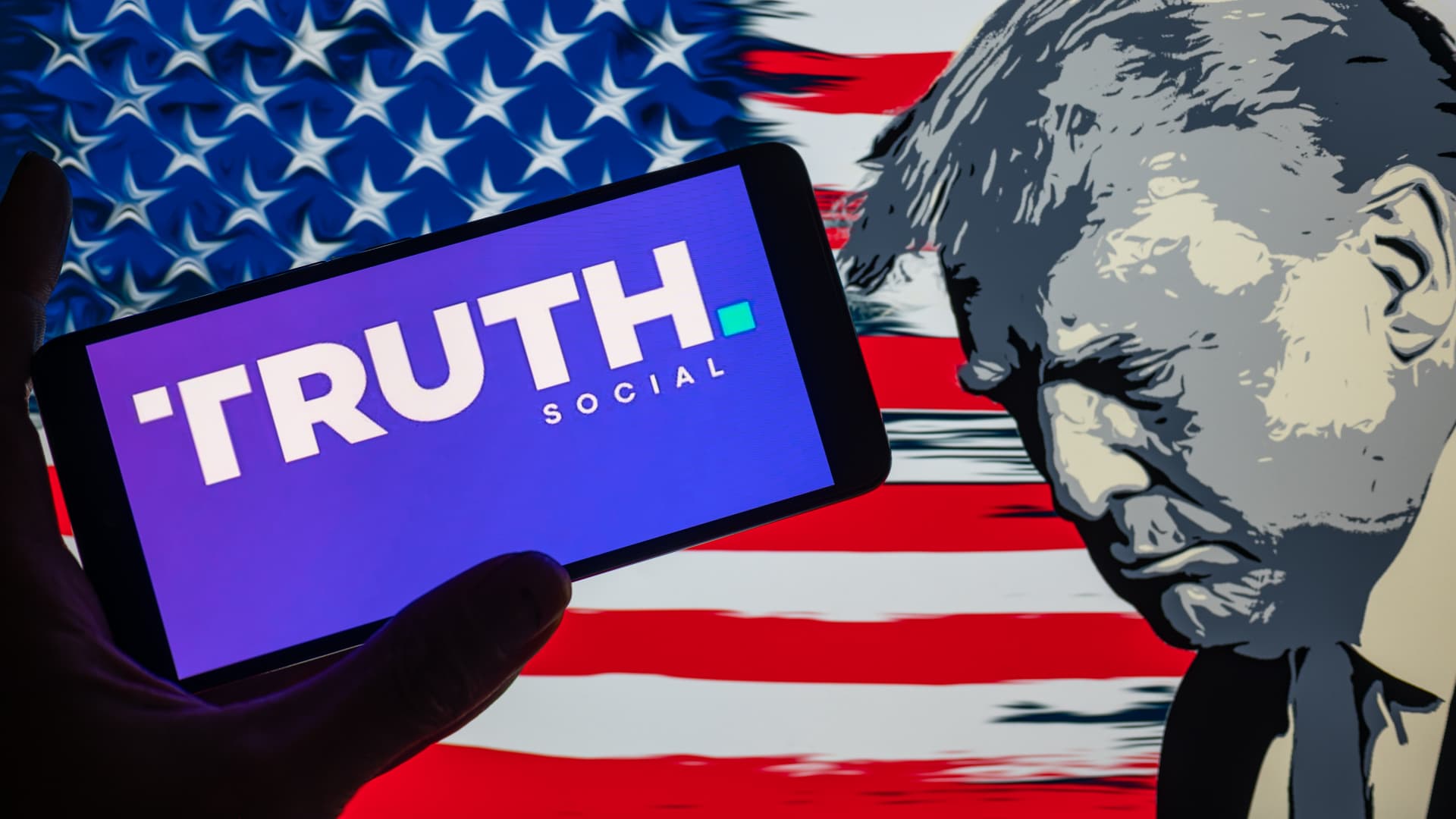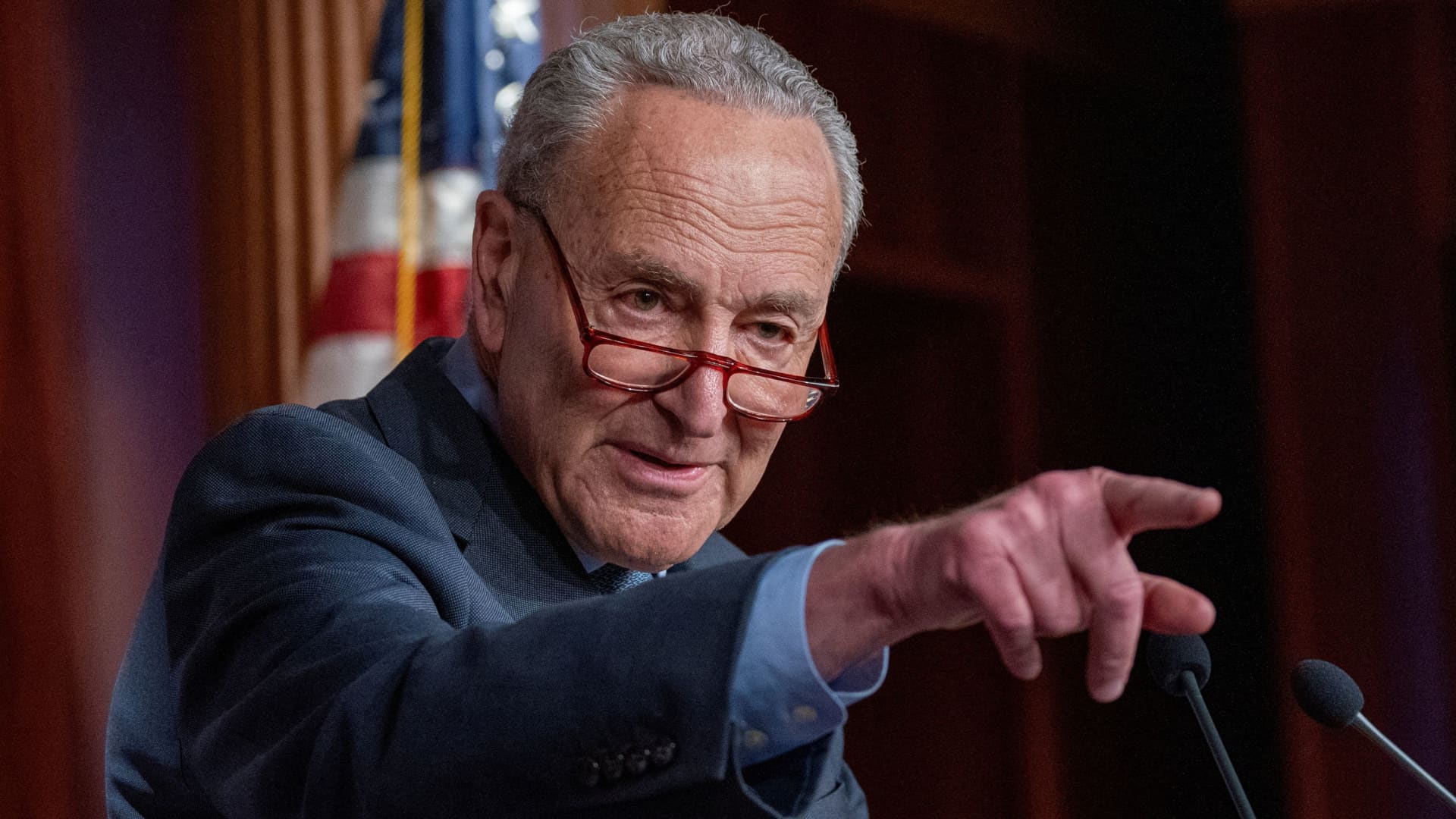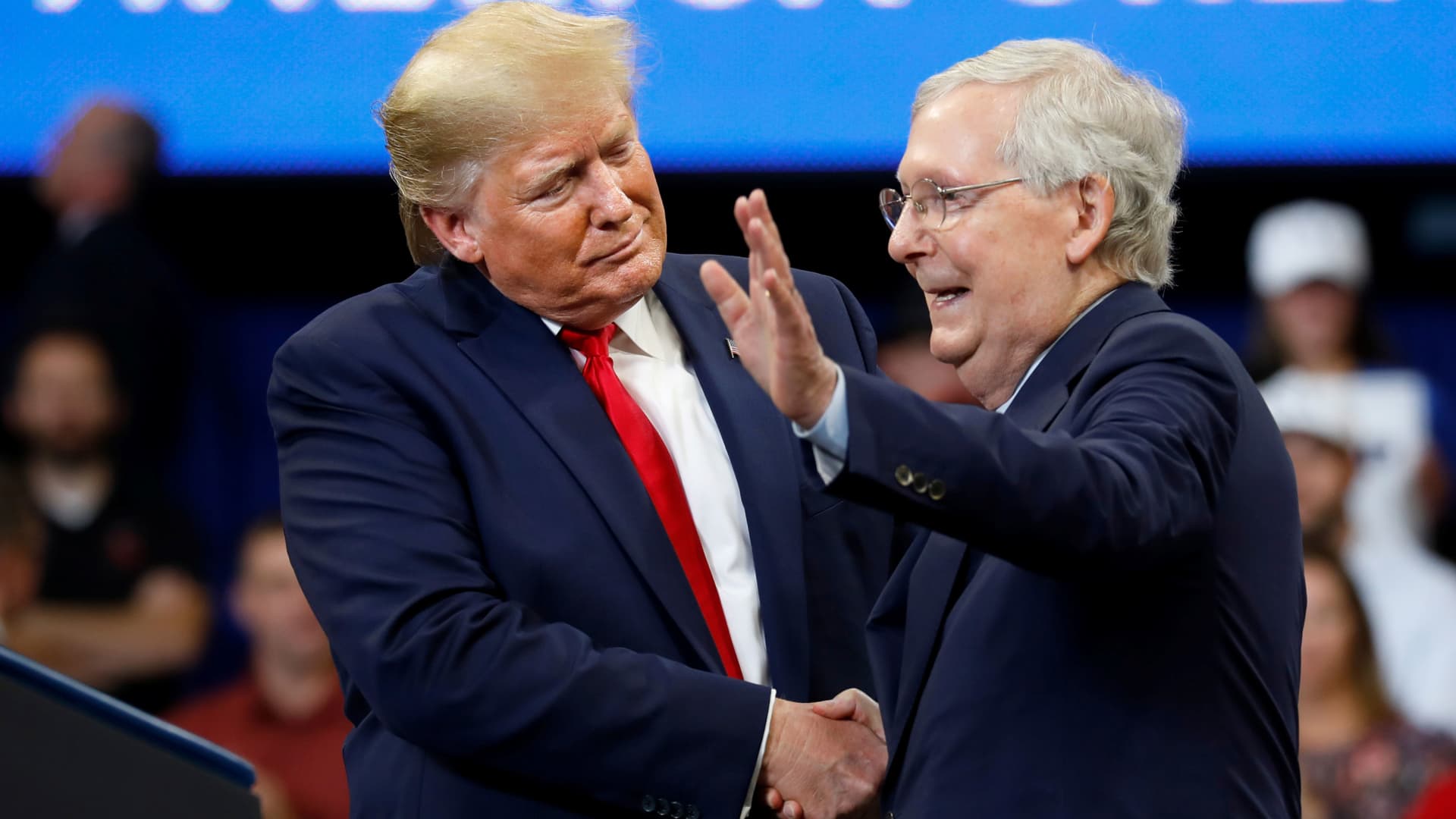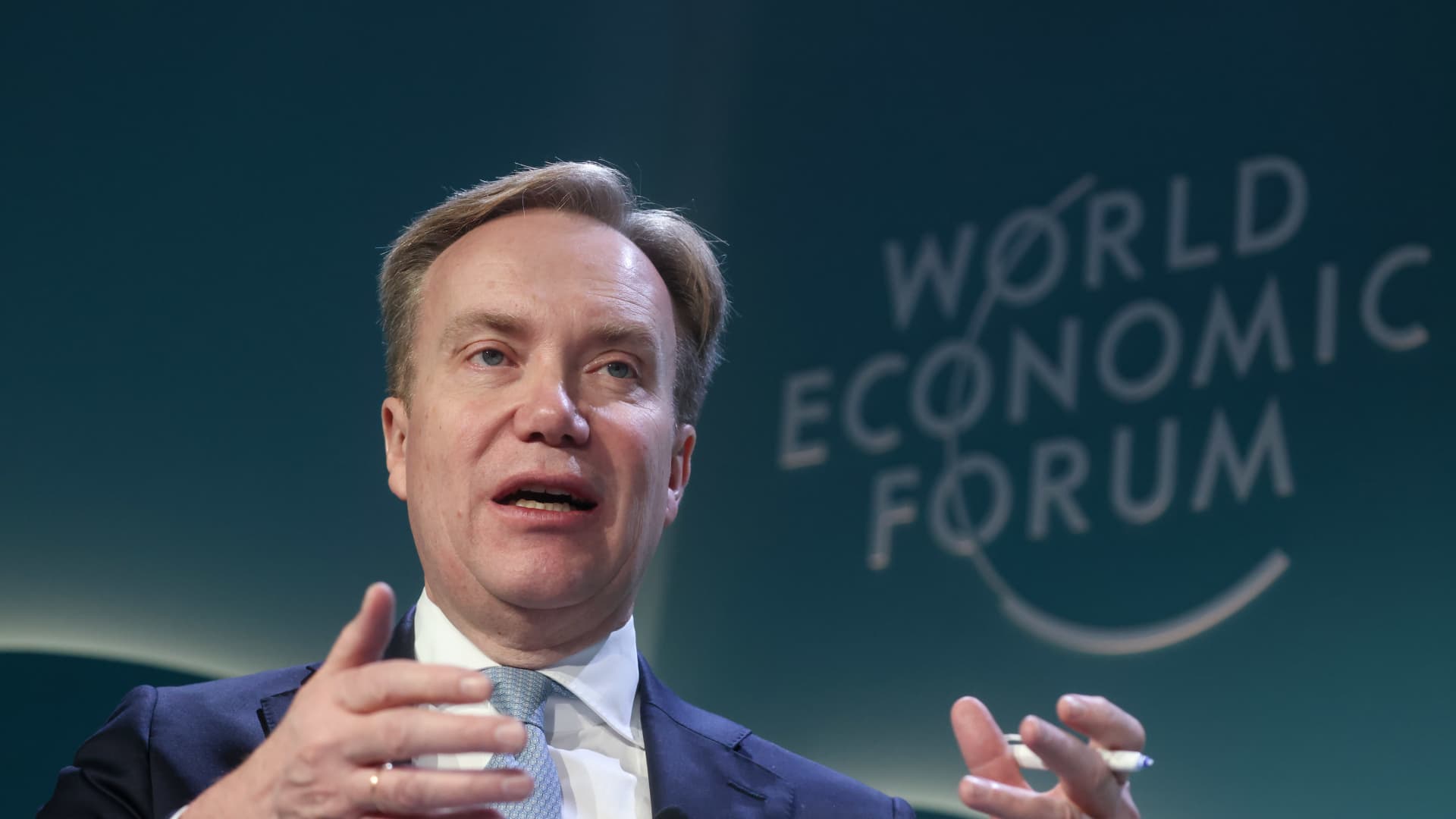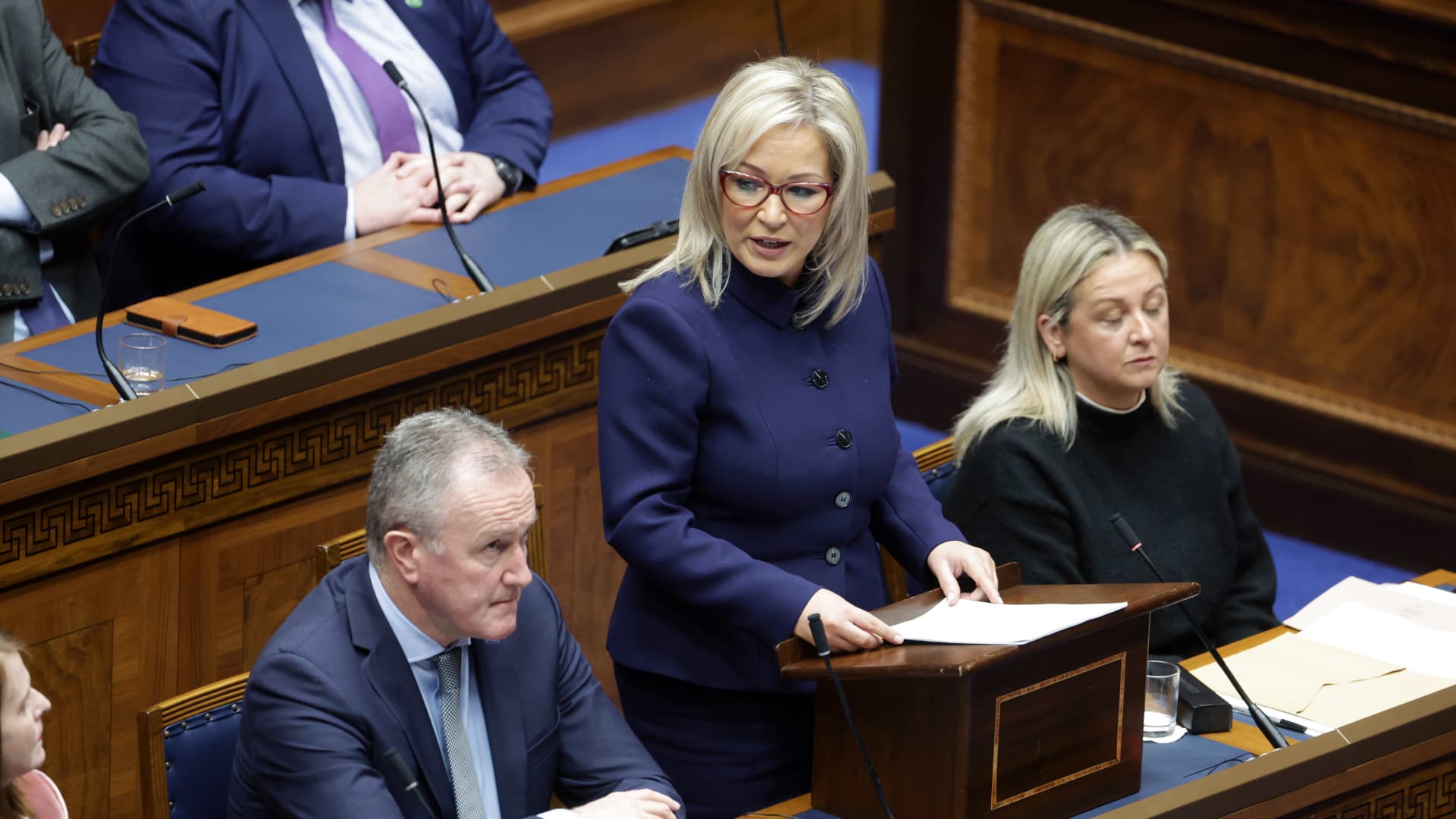President Joe Biden speaks during an event about cutting costs for American families at the Granite State YMCA Allard Center of Goffstown on March 11, 2024 in Goffstown, New Hampshire.
Sophie Park | Getty Images News | Getty Images
President Joe Biden is starting to win the inflation-blaming game against corporations.
A recent online poll by the Financial Times and Michigan Ross found that 63% of respondents blamed price increases over the past six months on “big companies taking advantage of inflation,” up from 54% in November. Meanwhile, 38% of respondents attributed the price increases to Democratic policies, unchanged from November.
A majority of 59% continued to disapprove of Biden’s handling of the economy, down only slightly from 61% in November, the poll showed. The poll, conducted between February 29 and March 4, surveyed 1,010 registered voters with a margin of error of +/-3.1%.
Still, voters’ growing frustration with the companies is a relief for the White House and Biden’s re-election campaign.
Both are fighting hard to convince Americans that stubbornly high inflation is the fault of corporations, not Bidenomics.
“Too many companies are raising prices to pad their profits, charging more and more for less and less,” Biden said in his State of the Union address on Thursday. “That’s why we’re cracking down on companies that engage in price gouging or misleading pricing – from groceries to healthcare to housing.”
The consumer price index released on Tuesday showed inflation rose 0.4% in February, broadly in line with analysts’ expectations. The price increase was largely driven by housing costs, one of the focuses of Biden’s 2025 budget proposal released Monday.
“As I said in my State of the Union, we must do more to reduce costs and give the middle class a fair shot,” Biden said Tuesday in response to the CPI report.
Another data point encouraging for Biden is consumer confidence, which has seen a record turnaround.
According to a widely followed consumer survey from the University of Michigan, consumer sentiment was 76.9 in February, about the same level as when Biden took office. This is a remarkable recovery since consumer sentiment hit an all-time low of 50.0 in the June 2022 survey.
The Financial Times survey confirmed a more optimistic economic outlook. Although the majority still viewed the economy more negatively, the gap narrowed: 30% of respondents rated overall economic conditions as positive, an increase of nine percentage points from November.
Biden’s fight against corporate interests has been the foundation of his economic platform since the beginning of his term.
From an aggressive antitrust fight to a crackdown on junk fees to new rules for negotiating drug prices, the president has mounted multiple fronts to combat rising consumer costs. Biden’s 2025 budget also reiterated his call for tax increases on billionaires and wealthy corporations.
But with the November general election approaching, Biden’s next economic confrontation will be against former President Donald Trump, the presumptive Republican presidential nominee.
In a CNBC interview on Monday, Trump criticized Biden’s economy and “skyrocketing” energy and food prices. Recent polls have shown that voters still prefer Trump’s handling of the economy to Biden’s. Trump has said that if elected he is considering universal import tariffs that would likely raise consumer prices.
In the same interview, Trump suggested he was open to cuts to Social Security, Medicaid and Medicare. The Biden campaign immediately jumped on it.
“This morning, Donald Trump said that cuts to Social Security and Medicare are again on the table,” Biden said Monday during a speech in New Hampshire after releasing his 2025 budget proposal. “I will never let that happen.”
Source link
2024-03-12 20:30:53
www.cnbc.com

